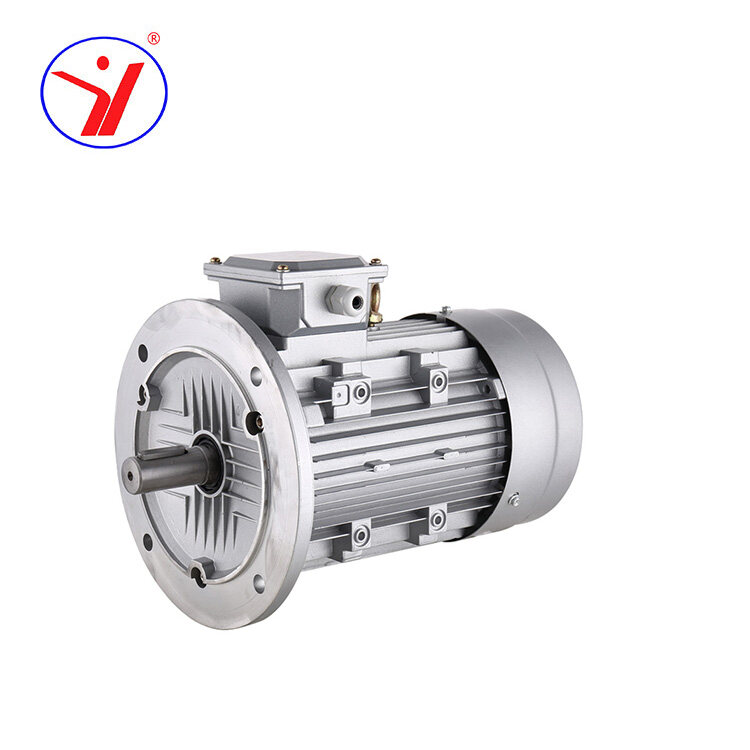Exploring the Power and Efficiency of the 25 kW Brushless Alternator
In the world of power generation, alternators play a crucial role in converting mechanical energy into electrical energy. One of the most efficient and reliable types of alternators is the 25 kW brushless alternator. This article delves into the features, benefits, applications, and advancements of the 25 kW brushless alternator, providing a comprehensive guide for anyone interested in this powerful device.
What is a 25 kW Brushless Alternator?
A 25 kW brushless alternator is an electrical generator that produces 25 kilowatts of power without the need for brushes to transfer electrical current. Unlike traditional alternators that use brushes and slip rings to transfer current to the rotating part of the machine, brushless alternators use electronic commutation. This design eliminates many of the common problems associated with brushed alternators, such as wear and tear, maintenance issues, and electrical noise.
Key Components and Design
The 25 kW brushless alternator comprises several key components:
- Stator: The stationary part of the alternator that contains windings where the electrical output is generated.
- Rotor: The rotating part that induces a magnetic field in the stator windings.
- Rectifier Assembly: Converts AC to DC current.
- Voltage Regulator: Maintains a consistent voltage level.
How Brushless Technology Works
In a 25 kW brushless alternator, the rotor is equipped with permanent magnets or a wound field, and the stator houses the armature windings. The absence of brushes reduces mechanical friction, resulting in higher efficiency and lower maintenance requirements. This brushless technology also allows for better control over the alternator's output and performance.
Benefits of a 25 kW Brushless Alternator
The alternator offers numerous benefits that make it an attractive choice for various applications. Here are some of the primary advantages:
Enhanced Efficiency
One of the standout features is its high efficiency. The absence of brushes reduces energy losses due to friction, allowing more mechanical energy to be converted into electrical energy. This increased efficiency is particularly beneficial in applications where maximizing energy output is crucial.
Low Maintenance
Traditional alternators with brushes require regular maintenance to replace worn brushes and clean slip rings. In contrast, the brushless alternator requires minimal maintenance, reducing downtime and operational costs. This makes it ideal for remote or hard-to-reach installations where regular maintenance would be challenging.
Improved Reliability
Brushless alternators are known for their durability and reliability. Without brushes to wear out, the brushless alternator can operate for extended periods without the need for repairs. This reliability is essential in critical applications where consistent power supply is crucial.
Reduced Electrical Noise
The absence of brushes also means that the brushless alternator generates less electrical noise. This is particularly important in applications where sensitive electronic equipment is used, as it reduces the risk of interference and signal disruption.
Applications of the 25 kW Brushless Alternator
The versatility and reliability make it suitable for a wide range of applications. Here are some of the most common uses:
Industrial Power Generation
In industrial settings, a consistent and reliable power supply is essential. The brushless alternator is often used in backup power systems and continuous power generation for factories, manufacturing plants, and other industrial facilities.
Renewable Energy Systems
With the growing emphasis on sustainable energy, the brushless alternator is increasingly used in renewable energy systems such as wind turbines and hydroelectric generators. Its high efficiency and low maintenance requirements make it an ideal choice for these applications.
Marine and Automotive Applications
The brushless alternator is also popular in marine and automotive applications. In boats and ships, it provides reliable power for navigation systems, communication equipment, and other onboard electronics. In automotive applications, it is used in hybrid and electric vehicles to generate electricity for the vehicle's systems.
Emergency and Backup Power
For emergency and backup power systems, the alternator is a reliable choice. It ensures that critical systems remain operational during power outages, making it a vital component in hospitals, data centers, and other essential services.
Technological Advancements in Brushless Alternators
The field of brushless alternator technology is continually evolving, with new advancements improving their performance and efficiency. Here are some of the latest developments in the alternator technology:
Advanced Materials
The use of advanced materials in the construction has led to significant improvements in their performance. High-strength magnets, better insulation materials, and improved cooling systems all contribute to the enhanced efficiency and durability of these alternators.
Smart Control Systems
Modern brushless alternators are often equipped with smart control systems that allow for better monitoring and control of the alternator's performance. These systems can optimize the alternator's operation based on the load demand, improving efficiency and reducing wear and tear.
Integration with Renewable Energy Sources
As the demand for renewable energy grows, the brushless alternators are being designed to integrate more seamlessly with renewable energy sources. This includes better compatibility with variable energy inputs from sources like wind and solar, ensuring a stable and reliable power output.
Installation and Maintenance Tips
To ensure the optimal performance, proper installation and maintenance are crucial. Here are some tips to help you get the most out of your alternator:
Installation
1. Location: Install the alternator in a well-ventilated area to prevent overheating. Ensure it is mounted on a stable surface to reduce vibrations.
2. Wiring: Use high-quality wiring and connectors to reduce resistance and prevent electrical losses. Follow the manufacturer's wiring guidelines to ensure correct installation.
3. Protection: Install appropriate protection devices such as circuit breakers and surge protectors to safeguard the alternator and connected equipment.
Maintenance
1. Regular Inspections: Conduct regular inspections to check for signs of wear, corrosion, or damage. Pay particular attention to the cooling system and electrical connections.
2. Cleanliness: Keep the alternator and its surroundings clean to prevent dust and debris from affecting its performance.
3. Lubrication: While brushless alternators require minimal maintenance, it's essential to keep any moving parts well-lubricated according to the manufacturer's recommendations.
Choosing the Right 25 kW Brushless Alternator
Selecting the right alternator for your needs involves considering several factors. Here are some key points to consider:
Power Requirements
Ensure the alternator can meet your power needs. Consider the peak and continuous power demands of your application to choose an alternator with adequate capacity.
Efficiency
Look for an alternator with high efficiency to maximize energy conversion and reduce operational costs. Efficiency ratings can vary, so choose a model that offers the best performance for your specific application.
Reliability
Choose a brushless alternator from a reputable manufacturer known for producing reliable and durable products. Check customer reviews and industry ratings to ensure you're investing in a quality product.
Compatibility
Ensure the alternator is compatible with your existing systems and equipment. This includes voltage and frequency compatibility, as well as physical fit and connection requirements.
The Future of 25 kW Brushless Alternators
The future looks promising, with ongoing research and development aimed at further enhancing their performance and efficiency. Here are some trends to watch:
Increased Integration with Smart Grids
As smart grids become more prevalent, brushless alternators will play a critical role in ensuring a stable and reliable power supply. Their ability to respond quickly to changes in demand and supply will be crucial in maintaining grid stability.
Enhanced Energy Storage Solutions
With the rise of renewable energy, there is a growing need for efficient energy storage solutions. The brushless alternators will likely be integrated with advanced battery systems to provide reliable and continuous power, even when renewable sources are not producing energy.
Continued Advancements in Materials and Design
Ongoing advancements in materials science and engineering will lead to further improvements in the performance and durability. These advancements will make them even more efficient, reliable, and cost-effective.
Conclusion
The 25 kW brushless alternator is a powerful and efficient solution for a wide range of applications, from industrial power generation to renewable energy systems and emergency power supplies. Its numerous benefits, including high efficiency, low maintenance, and improved reliability, make it an attractive choice for many users.
As technology continues to advance, the performance and capabilities will only improve, solidifying its place as a critical component in modern power generation. Whether you're looking to upgrade your current power system or invest in new technology, the brushless alternator offers a reliable and efficient solution for your energy needs.


